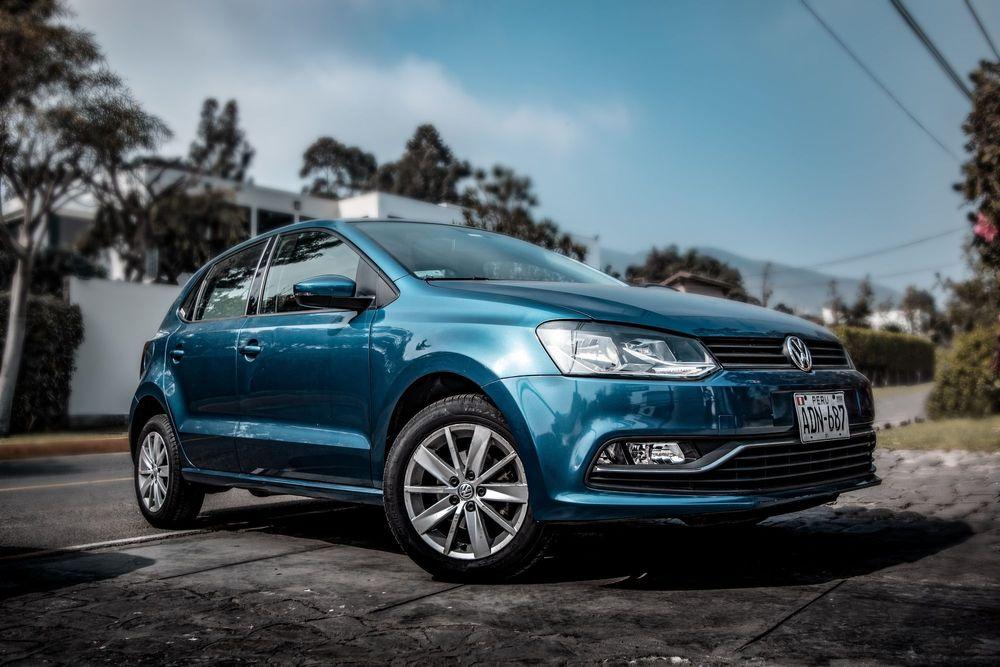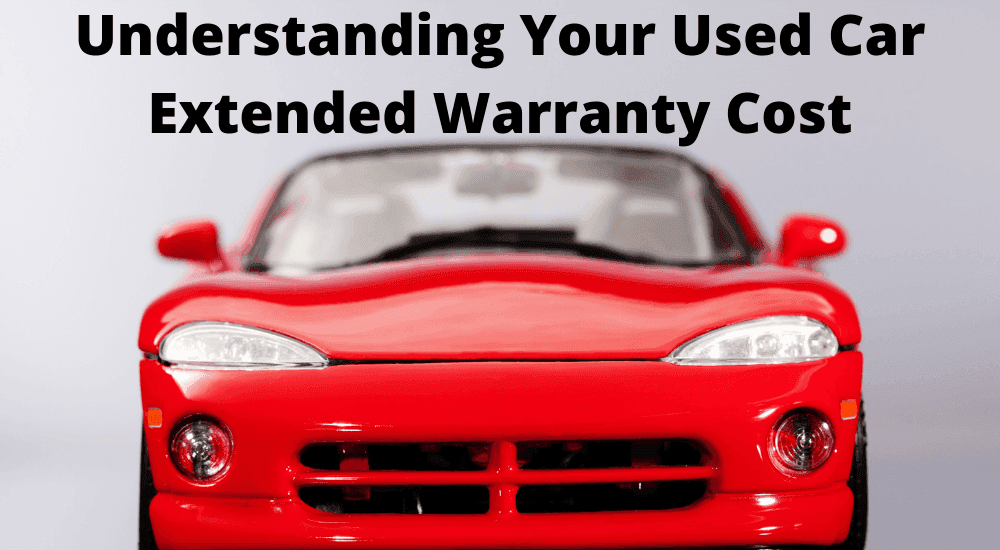When you buy a used car from a dealer, it often comes with a protection plan or the option to add one on. Car owners should know that they always have the option to buy an extended car warranty from a third-party provider. However, the type of warranty you buy will depend on many factors, including the manufacturer warranties you may still have for your car.
Here's what you should consider about the used car extended warranty cost if you want to avoid trips to the repair shops, protect your car bumper to bumper, or save on routine maintenance.
How Much Does an Extended Warranty Cost?
If you purchase an extended warranty from the car manufacturer directly, it will run you about $1,000 to $1,500. If you buy coverage from a third party in the form of a "vehicle service contract," the cost can vary even more widely, running you anywhere from $500 to $2,000.
Ultimately, many things factor into the exact cost of an extended warranty for your vehicle, including the add-ons it includes (like roadside assistance and rental cars), your plan's out-of-pocket repair costs, and the covered repairs that the policy actually helps pay for. You can also purchase a warranty that covers just one component, like powertrain warranties, which cost less than a full "bumper to bumper" option.
Remember, you can always get a free quote without committing to purchasing anything, so it's best to shop around in order to ensure you get the best deal.
Extended Warranties vs. Vehicle Service Contracts
Before you move forward in making your decision about a used car warranty, it's important that you understand the distinction between a "real" extended warranty and a vehicle service contract.
- Extended Warranty: In order to get all the benefits of your car's original factory warranty, you'll need to go to your manufacturer and ask for an extended warranty. These are the only true extended warranties, and they do exactly as their name implies by extending the coverage limits of your original factory warranty. For instance, if your original warranty was good for 36,000 miles or three years, your extended factory warranty may last for 60,000 miles or five years. Most auto makers offer several extension options, although they will come at a premium.
- Vehicle Service Contracts: While marketed as "extended warranties" by most providers, vehicle service contracts are offered by third parties, and they establish new agreements between you and either a third-party service network or the original automaker. While these contracts may still help you fix problems for cheap, they're completely unrelated to your original factory warranty and may offer completely different terms and coverage. As such, you need to read the policies and limitations carefully.
In general, if you're able to purchase an extended warranty from your car's manufacturer, that will be your best bet for optimal coverage. However, an extended factory warranty comes at a premium. You may also not have that option if your original factory warranty has already expired, which is often the case if you bought the car used to begin with.
On the other hand, if you're looking to get the most bang for your buck, and you're okay with shopping around, vehicle service contracts will give you far more options at varying price points since they're offered by countless third parties. Of course, that means it's very important that you do your research so you know what you're getting.

What Factors Into a Used Car Warranty's Cost?
In addition to the coverage and features of the warranty itself, your car's warranty cost will also depend on the following factors.
- The year, make, and model of your car.
- The actual mileage on your engine/vehicle.
- The repair and reliability history of your vehicle.
Typically, newer cars have less-expensive extended warranties. Likewise, an older car or a car with higher mileage will cost more to cover under a warranty, since repairs grow more frequent and more expensive as the years and miles add up. Of course, that could make it even smarter to protect yourself by investing in a good extended warranty.
How Are Extended Warranties Priced?
Unlike car insurance, which you pay a premium for on a six-month or monthly basis, extended warranties are purchased with a one-time fee. In other words, you'll pay for the warranty's coverage up-front when you agree to the terms. This generally represents a large sum of money, and one that may or may not be refundable if you decide to sell your car. As such, you need to do your research and read the fine print.
Your warranty's policy may cover the complete cost of certain repairs or stick you with an out-of-pocket fee for some or all repairs that are necessary. If you manage to extend your factory warranty, the manufacturer will cover a lot of the expensive repairs, but you'll still want to check before you buy in.
Additionally, your extended warranty may have a mileage and/or time cap on the coverage. For instance, coverage may expire after five years or when your car reaches 60,000 miles (whichever comes first). If you drive your car a lot, especially for your daily commute, you'll want to consider your average mileage so you know just how long your warranty coverage will truly last.
If you're not sure how much you drive in a given year, the Department of Transportation says the average person drives more than 1,000 miles per month or about 13,500 miles per year.
When Is It Smart to Purchase an Extended Warranty?
Since an extended warranty may last anywhere from three to five years, buying one sooner will lock you in at a better price than waiting a year or two until problems start. Of course, determining the right time to purchase a vehicle service contract or other type of warranty goes beyond that.
While you'll generally get a lower price for a newer car, it may not be wise to purchase an extended warranty until:
- You know for sure that you will keep your car for at least a few years longer.
- You have done your research regarding what the warranty covers.
- You have done your research about your car's model and year, and you know how many repairs to expect.
- You have compared warranty costs and coverage, and you know there's value in the policy compared to what you'd have to pay out-of-pocket.
If you're asking yourself whether you should buy an extended warranty, start by asking yourself whether you plan on keeping and driving your car for more years to come. If the answer is yes, go down the list and consider the other factors to make sure it's a wise investment.
Make an Investment You Can Count On
Do you own a used car that's always sending you to the repair shop? Are you shopping around for a used car that's reliable? Extended factory warranties and vehicle service contracts could help you save money, but in the event that you're looking to get into the driver's seat of something newer or more dependable, PrivateAuto can help you find it.
PrivateAuto is dedicated to helping people just like you buy and sell used cars with ease. Instead of trading in at the dealership or shopping sketchy used car lots, you can use PrivateAuto to search for used cars across your city, your state, or the entire country. With a secure messaging interface and tools that ensure a safe transaction, you will have the peace of mind you need to make a good decision.
